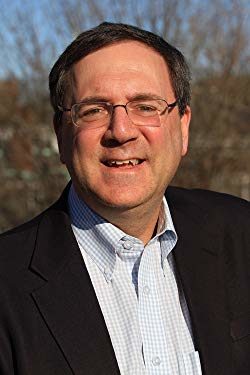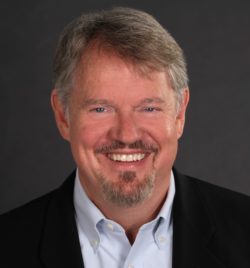The Perfect Weapon: War, Sabotage, and Fear in the Cyber Age
October 24th, 2018 5:30PM -7:30PM
New York Times Correspondent and author of The Perfect Weapon, David E. Sanger joined the World Affairs Council and moderator Tom Burt, leader of Microsoft’s Customer Security and Trust team, on October 24th for a sold-out discussion on how the United States must adapt in this new era of cybersecurity.
In a recent congressional hearing on Russian cyber-attacks, the Director of National Intelligence Dan Coats drew an explicit comparison to the situation before the 9/11 terrorist attacks—“The warning lights are blinking red again." Should cyber attacks be considered existential when virtually everything we rely on — whether computers, phones, transportation, electrical power grids, water supplies or global navigation and communications satellites — is interconnected in cyberspace? And is the United States prepared for the next cyber attack? Can it ever be? Sanger attempts to answer these questions in his new book, The Perfect Weapon, which is the inside story of how the rise of cyber weapons has transformed geopolitics. Sanger uses his 36 years of journalistic experience to illustrate the overall threat of cyber attacks and to point out just how dramatically unprepared the United States is.
During the conversation Sanger went into depth about what makes cyber weapons the perfect tool for modern warfare.They are cheap to acquire, difficult to trace, and can easily be scaled up or down depending on the intention of the attacker. From damaging infrastructure to sowing discord, these weapons can quickly and negatively impact cities and countries, while giving little or no time to react. Sanger pointed out that these weapons are now the choice of dictators, terrorists, and democracies alike. He mentioned that events such as the recently terminated Iran Nuclear Deal could serve as a possible motive for an attack from Iran once the second round of sanctions take effect on November 5th. The United States’ weak defense system against cyber weapons leaves the country vulnerable and ill-prepared for future attacks. Although there are many challenges in attempting to create cyber peace, Tom Burt pointed out in discussion that laws and norms must be established in order to start working towards this goal.
About the Speaker:

David E. Sanger is a national security correspondent and a New York Times senior writer. In a 36-year reporting career for The New York Times, he has been on three teams that have won Pulitzer Prizes, most recently in 2017 for international reporting. His newest book, “The Perfect Weapon: War, Sabotage, and Fear in the Cyber Age,’’ examines the emergence of cyberconflict as the primary way large and small states are competing and undercutting each other, changing the nature of global power.
He is also the author of two Times bestsellers on foreign policy and national security: “The Inheritance: The World Obama Confronts and the Challenges to American Power,” published in 2009, and “Confront and Conceal: Obama’s Secret Wars and Surprising Use of American Power,” published in 2012. For The Times, Mr. Sanger has served as Tokyo bureau chief, Washington economic correspondent, White House correspondent during the Clinton and Bush administrations, and chief Washington correspondent.
About the Moderator:
 Tom Burt leads Microsoft’s Customer Security and Trust (CST) team. CST is a cross-disciplinary team of engineers, lawyers, policy advocates, project managers, business professionals, data analysts, and cybercrime investigators. Burt’s team is formulating and advocating cybersecurity policy globally – advancing the Digital Geneva Convention, the Cybersecurity Tech Accord, and the Defending Democracy Program – and collaborating with public and private organizations to disrupt cyberattacks and support deterrence efforts.
Tom Burt leads Microsoft’s Customer Security and Trust (CST) team. CST is a cross-disciplinary team of engineers, lawyers, policy advocates, project managers, business professionals, data analysts, and cybercrime investigators. Burt’s team is formulating and advocating cybersecurity policy globally – advancing the Digital Geneva Convention, the Cybersecurity Tech Accord, and the Defending Democracy Program – and collaborating with public and private organizations to disrupt cyberattacks and support deterrence efforts.
Burt joined Microsoft in 1995 and has held several leadership roles in the Corporate External and Legal Affairs Department. He led the company’s Litigation Group from 1996 to 2007, and most recently led the Digital Trust team.
Burt received his bachelor’s degree in Human Biology from Stanford University and his law degree, magna cum laude, from the University of Washington Law School.
The Boeing Company is an underwriting sponsor of all World Affairs Council Community Programs